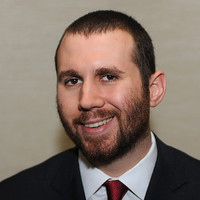It took a hard-boiled Minneapolis cop nearly nine minutes to end George Floyd's life. But it took three other officers' silence to let it happen.
Derek Chauvin, the veteran former officer who racked up 18 internal affairs complaints in his 19 years on the force, is charged with killing Floyd with a knee chokehold. Authorities gave him the most severe charges, second-degree murder and second-degree manslaughter.
Former officers Thomas Lane, J. Alexander Kueng and Tou Thao, who participated in Floyd's arrest, were later charged with aiding and abetting second-degree murder. Their involvement — Lane and Kueng helped hold Floyd down — and their failure to intervene are largely responsible for the tragic outcome.
This wasn't the contemptible conduct of one rogue cop. Four uniformed peace officers, public servants who'd taken an oath to serve and protect, watched a man die with his face pressed into the pavement.
Police Chief Medaria Arradondo fired all four officers immediately after Floyd's death. He made no effort to hide his disgust for Lane, Kueng and Thao.
"Silence and inaction, you're complicit," Arradondo told CNN. "If there was one solitary voice that would have intervened ... that's what I would have hoped for."
Hindsight casts Chauvin's fellow cops as feckless cowards, and perhaps as closet racists. But how unusual was their reluctance to question a brother in blue? And if we'd stood in their shoes on May 25, could we really be confident Floyd would still be breathing today?
An alarming number of Americans will follow instructions even when they're told to do something they feel is immoral or cruel. Psychologist Stanley Milgram discovered that sober truth in a 1961 experiment showing most people would administer what they believed to be severe electric shocks to actors posing as study volunteers.
Adult subjects reluctantly increased the voltage and continued the simulated shocks at an experimenter's urging. The oft-replicated study produces reliable results, with roughly 6 in 10 people so obedient that they'll deliver lethal shocks simply because a stern man in a white lab coat tells them to.
"The extreme willingness of adults to go to almost any lengths on the command of an authority constitutes the chief finding of the study and the fact most urgently demanding explanation," Milgram wrote in a 1974 summary. "Ordinary people, simply doing their jobs, and without any particular hostility on their part, can become agents in a terrible destructive process."
That sounds a lot like Chauvin's three colleagues: agents in a terrible, destructive process.
Milgram's research has drawn comparisons to German soldiers and civilians "just following orders" under Nazi rule. Psychological literature suggests we wouldn't all have been Holocaust heroes risking our lives to resist Hitler. Many of us would have fallen in line as concentration camp guards or informants who turned our Jewish neighbors over to the secret police. It's the banality of evil.
Keung and Lane, the cops who helped restrain George Floyd, were rookies who'd been on the job for less than a week. Chauvin was assigned as Keung's training officer. Thao, who stood idle as Floyd died, had roughly eight years of experience and six internal affairs complaints.
The trio recognized Chauvin, the senior officer on the scene, as their leader. He set the tone, and they followed along without question.
That doesn't absolve these men of their individual responsibility to intercede for Floyd. But it does help explain the pathology of police closing ranks to protect bad cops, an all-too-familiar phenomenon that spawned the Black Lives Matter movement.
As it casts a shadow over law enforcement, psychology also offers a path into the light. A 1988 study compared more than 700 people who aided Jews during the Holocaust to determine which traits separate rote rule followers from radical rescuers. What emerged was a detailed profile of the altruistic personality and some hints on how to cultivate it.
If just one of Chauvin's lackeys were made of sterner stuff, George Floyd might still be alive.
To stop police killings of unarmed black men, to end excessive use of force and to repair fractured relationships between cops and their communities, we need to recruit, hire and train for uncommon courage and strength of character rather than run-of-the-mill conformity.
Obedient cops are a dime a dozen. Send in the heroes.
Corey Friedman is an opinion journalist who explores solutions to political conflicts from an independent perspective. Follow him on Twitter @coreywrites. To find out more about Corey Friedman and read features by other Creators writers and cartoonists, visit the Creators webpage at www.creators.com.
Photo credit: cocoparisienne at Pixabay






View Comments